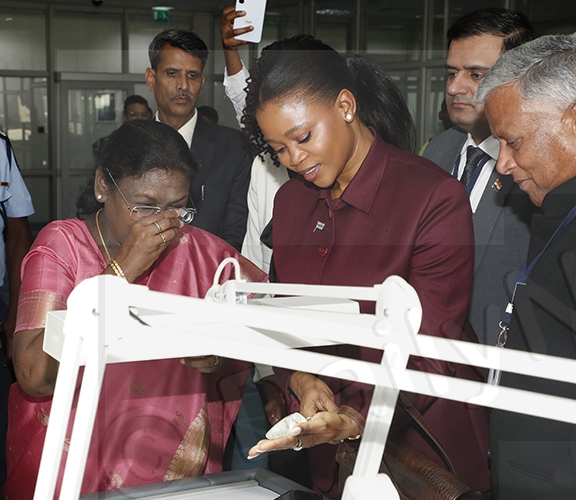Plight of cross border public transporters
09 Sep 2020
Cross border public transport system has been a thriving business for sometime.
However, the advent of the COVID-19 pandemic has halted the business because borders were closed due to travel restrictions.
All cross border business activities came to a standstill, leaving on the lurch all those reliant on them.
The pandemic did not only paralyse the economies of cross border transport owners, but their employees and customers were equally affected.
Although government rolled out a wage subsidy scheme to cushion different business sectors, only a handful of those in the cross border transport industry benefitted.
This was largely due to the fact that most cross border taxi operators did not meet the set criteria.
Some did not have registered businesses, while others only operated with hired permits.
In an interview recently, one of the bus owners plying the Gaborone/Johannesburg route, Mr Leader Mosweu said the current reality was devastating.
He said the indefinite suspension of his business, as a measure to contain COVID-19, left him out in the cold and deep in debt.
As a way to cushion his financial woes, Mr Mosweu said he opted to sell one of his mini-buses to feed his household and also fulfill his loan payment agreement with the bank.
“My last trip to South Africa was at the end of March, since then, my buses have remained parked,” he said, adding that he was at his wits’ end.
He said before corona, the business was able to sustain his livelihood, despite the normal business challenges.
One of the bus drivers plying the Gaborone/Namibia Windhoek route, Mr Molao Maoto said his livelihood was not spared by the pandemic.
“Closure of borders has brought nothing but pain into my life. I was solely dependent on transporting people to Windhoek for different errands. But now that borders are closed, I struggle to make ends meet for those who depend on me,” said Mr Maoto.
He said they pleaded with the Ministry of Transport and Communications, through the Department of Road Transport and Safety to cushion them, especially that the holiday period at the banks elapsed in June and that they still had obligations to honor, but the talks did not bear any fruit.
He said they started feeling the pinch in February, when the number of cross border passengers declined since most people were afraid to cross borders because of the pandemic.
“When the first lockdown was announced in March, we had already suffered a hard blow, as our passengers had declined, especially the street vendors who travelled across borders frequently, to buy merchandise,” he said.
Operations manager at Tee Pee Transport, Mr Mogomotsi Gaolape, also stated that they had not been spared effects of the COVID-19 pandemic.
He said they had four long haul buses that travelled from Gaborone to Zimbabwe every evening, but had not been operational since April.
He said this was a setback, especially that before lockdown, they had invested in enhancing the look and feel of their buses to cater for the long trips, adding that they had engaged employees both locally and in Zimbabwe.
He was grateful for the wage subsidy, lamenting however that it only benefitted local employees and they had to dig into their pockets to come up with other viable means to cushion foreign employees.
Mr Gaolape further said in efforts to supplement their current financial situation, they had resorted to introducing a night bus from Gaborone to Francistown.
“We have decided to take advantage of the Francistown Gaborone route at night, especially that the passenger train has been suspended. Our bus leaves Gaborone at 10pm and arrives in Francistown in the morning at 5am,” he said.
The cross border transport sector did not only benefit, passengers, transporters and their employees, but also taxi marshals, who directed and registered customers.
The bus rank has quietened somewhat since their reverting voices across the bus terminals were no more and their P5 per passenger fee had dried up.
Meanwhile, secretary of Cross Border Transport Association, Mr Thapelo Thedi, said they had no choice, but to accept the prevailing circumstances and suspend their income generating activities.
Mr Thedi said one of the interventions was to be slotted on different local public transport routes, which he said were not lucrative since most were already congested, while some only get busy during holidays or month ends.
He further said they were still awaiting a response to their request to be assisted with money amounting to a third of their profits by government. Ends
Source : BOPA
Author : Chendzimu Manyepedza
Location : Gaborone
Event : Interview
Date : 09 Sep 2020





